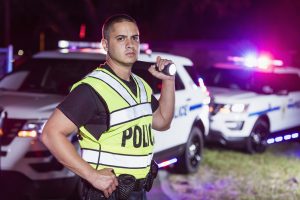Drunk Driving Illegal Search Case to be Considered by Supreme Court
 In Harris County, Montgomery County, Houston and the entire state of Texas, drivers give implied consent when they get behind the wheel. Essentially, this means they have given their permission for law enforcement to test their blood-alcohol concentration. Police cannot just test your BAC whenever they want to, though. They will need to have probable cause or a reasonable suspicion that you have consumed too much alcohol to be safely behind the wheel.
In Harris County, Montgomery County, Houston and the entire state of Texas, drivers give implied consent when they get behind the wheel. Essentially, this means they have given their permission for law enforcement to test their blood-alcohol concentration. Police cannot just test your BAC whenever they want to, though. They will need to have probable cause or a reasonable suspicion that you have consumed too much alcohol to be safely behind the wheel.
There have been many legal disputes and court cases attempting to clarify the extent of the power of law enforcement when it comes to stopping potentially drunk drivers and testing the level of alcohol in their bodies. The disputes typically center around whether the accused’s Fourth Amendment rights against unreasonable search and seizure were violated. The defendant will petition to the court, arguing that evidence was collected illegally. If the court agrees, then the judge will order the evidence suppressed. The evidence, as well as any other information that police obtained as a direct result of the illegal search, will not be admissible by the prosecutor. Since the illegal evidence cannot be used against you, the prosecutor may have to drop the charges if there’s no other proof of your intoxication.
One recent dispute has navigated its way through the legal system and the Denver Post reports that the case may be heard by the U.S. Supreme Court. This means that the decisions of the Supreme Court will apply to every defendant in a criminal case for drunk driving throughout the United States.
How Far Can Police Go Without a Warrant?
The case, People v. Schaufele, which the Supreme Court may announce a decision to hear as early as January, originates from an accident that began at around 7:15 in the morning at a busy intersection. An allegedly disoriented driver was found at the scene after hitting an oncoming car. The driver was transported to the hospital.
No one reported smelling alcohol on the man, and law enforcement attributed the driver’s initial confusion to post traumatic stress from the accident. However, the fourth law enforcement officer to come into contact with him smelled alcohol on him. An officer at the hospital also indicated that he detected the scent of alcohol. That officer tried to inform the driver that a blood test would be taken to determine intoxication. The driver, however, was unconscious or asleep and did not give consent.
There was no warrant obtained before the test was administered. The results revealed that the driver had a blood-alcohol concentration around three times over the .08 legal limit. As a result, the driver was charged with four counts, including drunk driving.
He pled not guilty and sought to have the evidence suppressed because the blood test allegedly violated his rights. The Supreme Court in Colorado, where the arrest occurred, agreed that the blood draw should not be used. The case has been appealed to the U.S. Supreme Court, which would make the decision about whether this type of evidence is admissible. Future drunk driving defendants will be affected by this ruling, as it could impact evidence collection procedures and the kinds of evidence that can be used in court.
Call Joseph LaBella & Associates today at 800-395-5951 or visit http://www.texas-dwi-lawyers.com/ to speak with a Houston DUI defense lawyer. Serving Harris County, Montgomery County, and communities along Interstate 45 through The Woodlands and Conroe.






